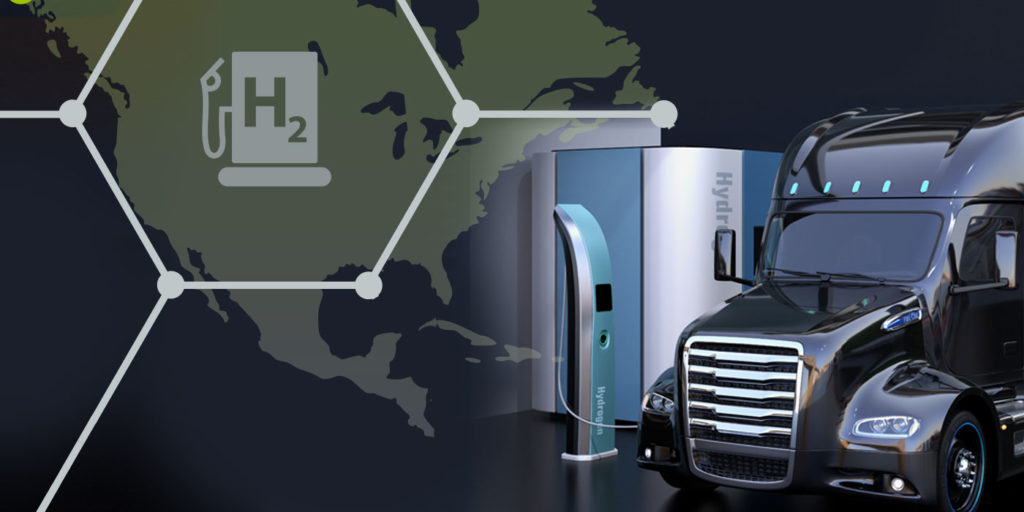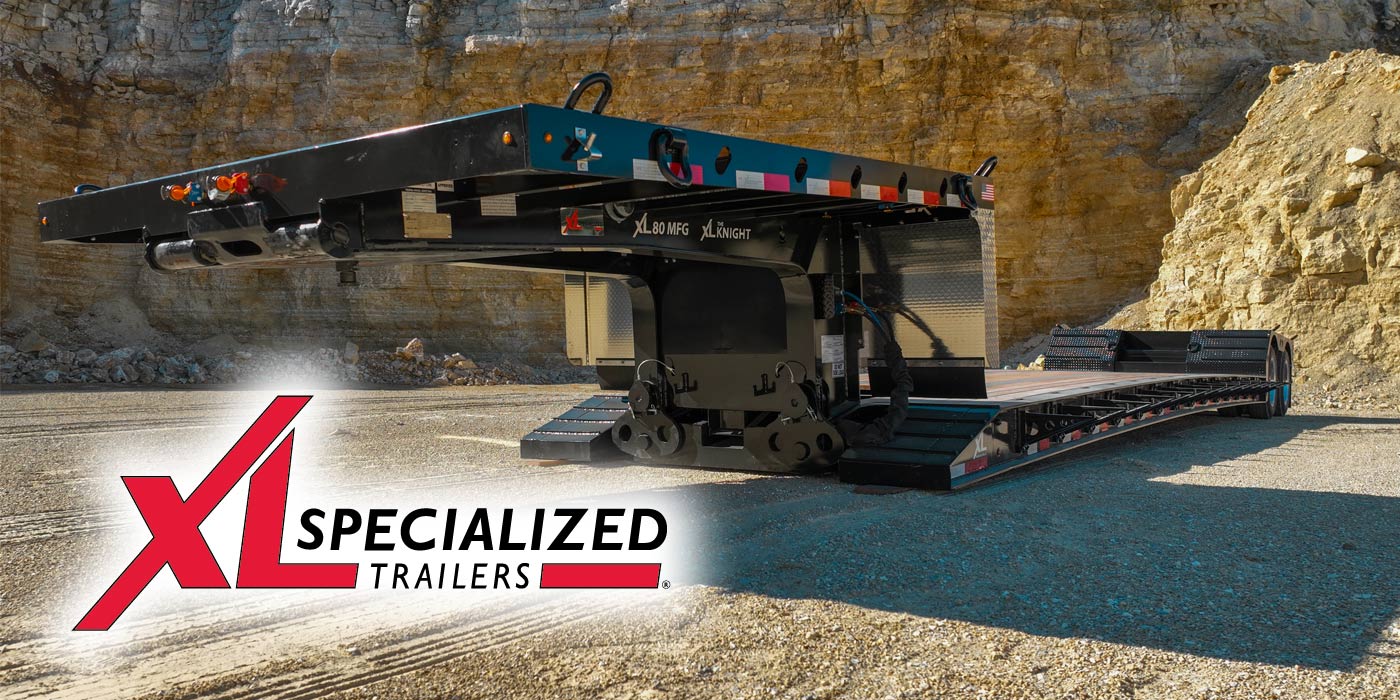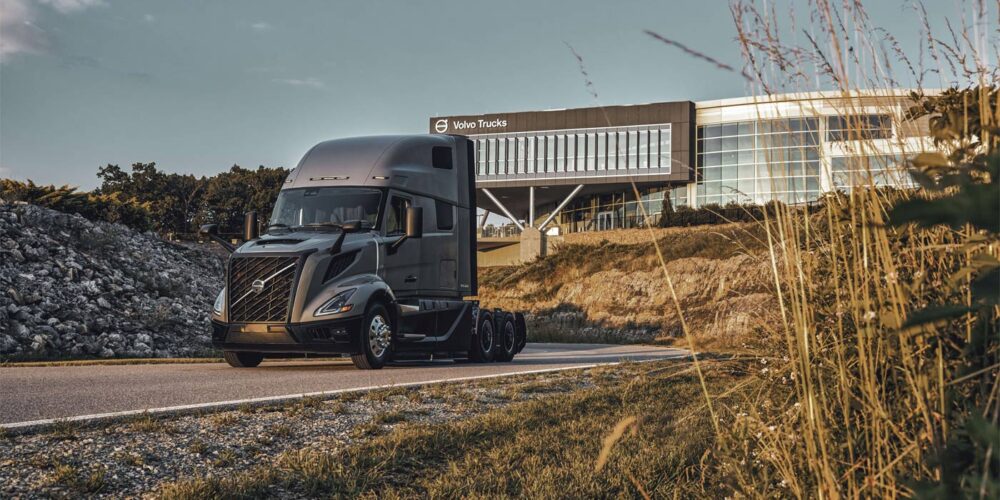A funny trend surfaced at the North American Commercial Vehicle show at the tail end of 2019: increased talk of hydrogen-fueled trucks. Sure, Kenworth had made its partnership with Toyota to pursue hydrogen technology earlier that year, but at NACV 2019 several OEMs, including Daimler Trucks North America and Cummins, talked about hydrogen truck development.
That buzz crescendoed in 2020.
In April, Daimler Truck AG and the Volvo Group announced that the global competitors signed a preliminary non-binding agreement to establish a new joint venture to develop, produce and commercialize fuel cell systems for heavy-duty vehicle applications and other use cases. In October, Hino announced its own hydrogen truck initiative. In November, Cummins and Navistar announced that they will work together on the development of a Class 8 truck powered by hydrogen fuel cells. And 2021 kicked off with Navistar announcing a partnership with General Motors and OneH2 to bring a long-haul hydrogen truck to market.

All of this happened while electric truck orders were opening and the industry waited (and still waits) to see how fully electric truck technology will be adopted by the fleet market. So the questions are: How seriously should fleets be considering hydrogen trucks? Is this a hedging of future fuel bets? A new shiny object for investors? Or is there a need within the market for clean hydrogen-fueled trucks?
In talking with Jeff Priborsky, global marketing manager of the on-highway fleet sector at Shell, the answer could be surprising:
“I think you’re going to see it,” Priborsky said confidently. “As the technology becomes more and more available, I think you’ll see more fleets looking at it.”
What’s the appeal?
“It’s based upon duty cycle,” Priborsky explained. “The light commercial vehicle space is prime for electrification for regional applications like last-mile delivery. Regional haul is something that can fit within a realm of electrification because it fits into the range of that equipment. But when it comes to the electrification of long haul trucks, electrification may not exactly work because of the range of the vehicles. If you look at a hydrogen fuel cell vehicle, its range is equivalent to that of diesel. Their problem is that right now, the infrastructure is not there to support it.”
The fueling infrastructure challenge is somewhere Shell could make an impact quickly if the interest in the equipment supported it. Priborsky shared that Shell is currently installing hydrogen fueling stations for cars in California.
“We’re going down that path,” he said, “and if you look at the work we do globally in our retail sector, which is what we call your typical fuel stations, how we’re putting in electrification throughout Europe into our retail sector—we’re helping advance that infrastructure on a global basis.
“There are fleets that are all in on hydrogen technology, and they’re there to support it. We’ve seen other OEMs also going down the road of hydrogen fuel cells. To me, it’s the way of the future.”
To be sure, Cummins, Daimler Trucks, Hino, International Trucks, PACCAR and Volvo Trucks have all invested heavily in the development of hydrogen trucks. During the press event in which Volvo Trucks North America announced that it was opening orders for the VNR Electric (that’s battery electric), Peter Voorhoeve, president of Volvo Trucks North America, said of hydrogen power:
“We believe that hydrogen fuel cells are another alternative fuel source that will happen in the future. You will see not one [fuel source] solution. We will continue to see diesel trucks. We will see a rapid increasing amount of electric trucks on the road. And we will see fuel cell-driven trucks, where the latter will mostly play more in long haul and heavy haul. Where then electric we will see more in local and regional distribution, food delivery and pickup for instance. We will still see diesel and we will see natural gas. But fuel cell trucks are absolutely part of the solution going forward.”
If you’re a long-haul, over-the-road operation, then it’s worth taking a look at what hydrogen is offering in terms of a diesel equivalent. Click here to peruse our full archive of hydrogen-focused content.
Equally important is how hydrogen could fit into sustainability plans, another topic important to Priborsky. If you’re wondering why sustainability should be important to your fleet and looking for ways to get started, head over to this story:














